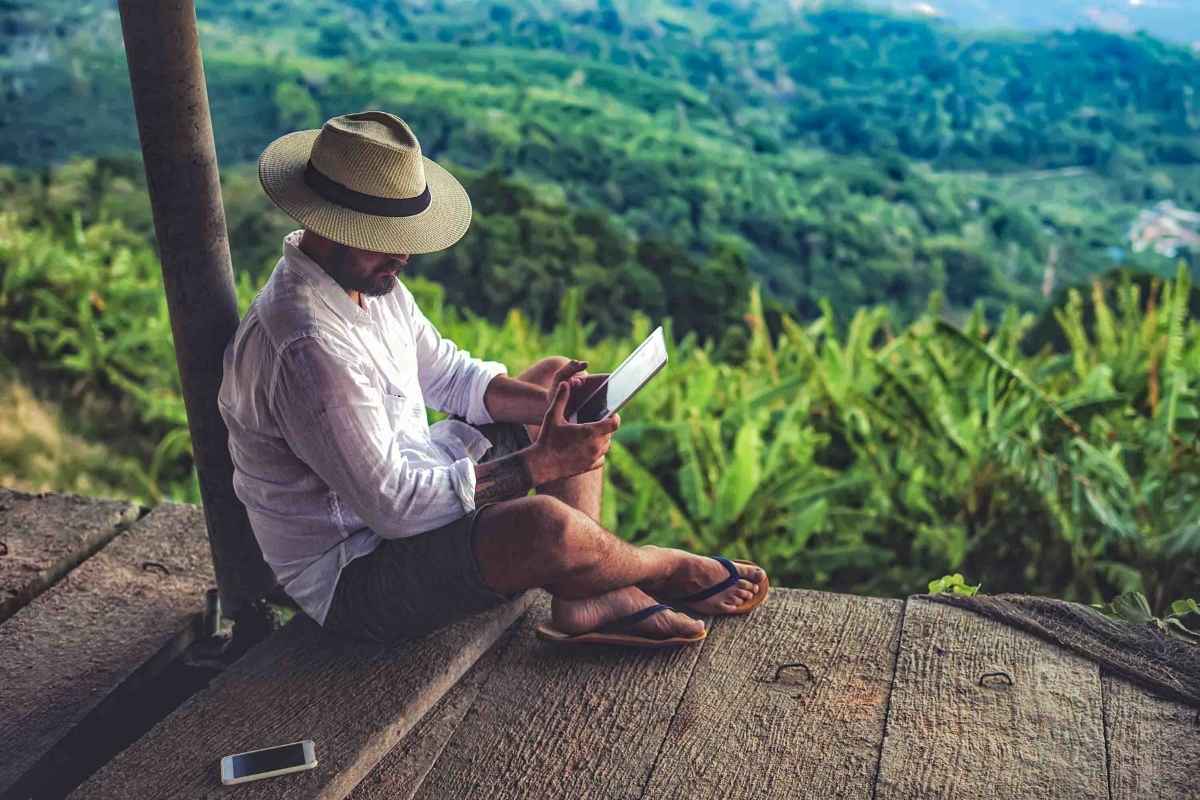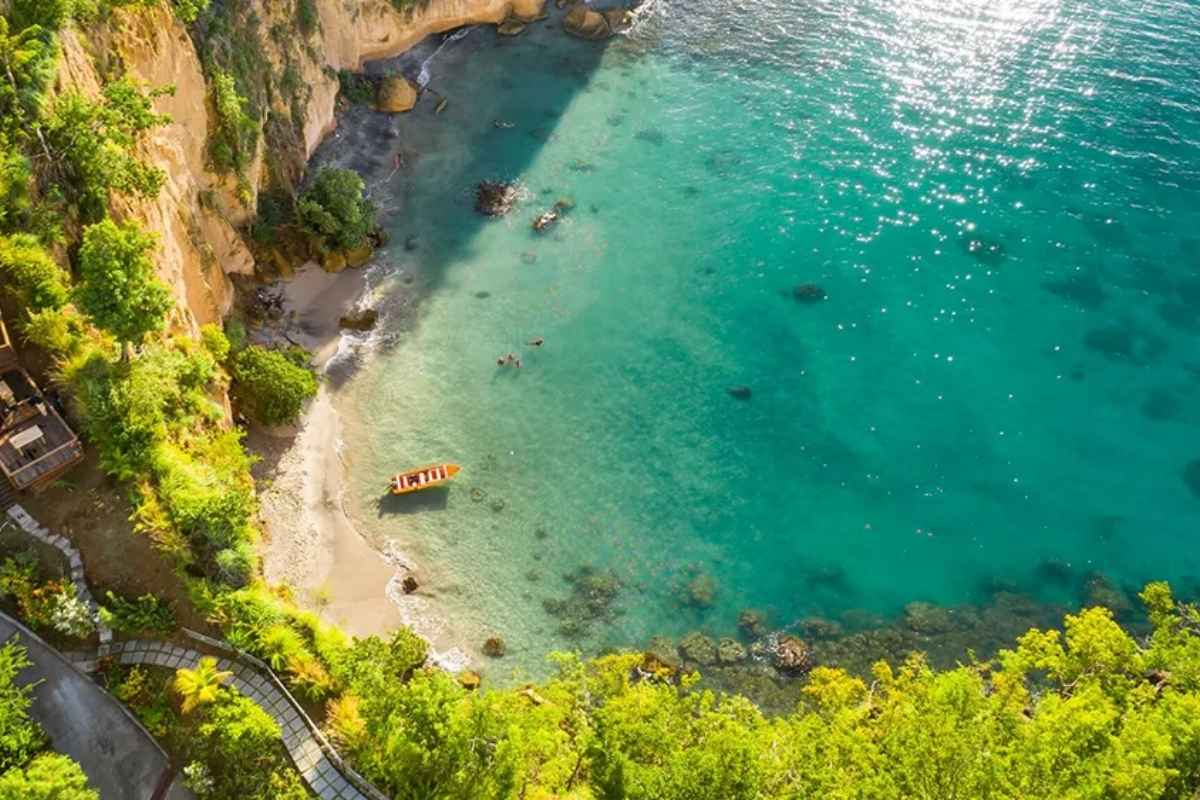In an era where digital connectivity is constant, the desire to unplug and escape from the virtual world is growing. The concept of a “digital detox” is gaining popularity among travelers who seek to disconnect from screens and reconnect with nature, themselves, and those around them. But what does off-the-grid travel truly mean, and how can you experience it without compromising comfort and adventure?
1. Why Digital Detox Travel is on the Rise
A. The Overload of Digital Connectivity
With smartphones, social media, and remote work blurring the lines between personal and professional life, many individuals find themselves overwhelmed by constant notifications and information. Studies show that excessive screen time can lead to stress, anxiety, and decreased attention spans.
B. The Benefits of Unplugging
Taking a break from digital devices offers numerous mental and physical health benefits:
- Reduced stress and improved sleep patterns
- Enhanced mindfulness and presence in the moment
- Strengthened relationships with travel companions
- Increased appreciation for nature and local culture

2. Top Destinations for Off-the-Grid Travel
Certain destinations around the world cater specifically to travelers seeking digital detox experiences.
A. Patagonia, Chile & Argentina
A remote wilderness of glaciers, mountains, and pristine lakes, Patagonia offers unparalleled opportunities for hiking, wildlife spotting, and disconnecting from modern distractions.
B. The Lofoten Islands, Norway
Located above the Arctic Circle, the Lofoten Islands provide stunning landscapes, midnight sun (or Northern Lights), and a slow-paced lifestyle that encourages digital-free exploration.
C. The Australian Outback
With vast deserts, rugged landscapes, and indigenous cultural experiences, the Outback is a perfect place to escape the internet and immerse yourself in ancient traditions.
D. The Himalayas, Nepal & Bhutan
These spiritual destinations offer serene monasteries, breathtaking trekking routes, and a way to disconnect from the digital noise while reconnecting with your inner self.
E. Faroe Islands, Denmark
An untouched Nordic paradise with dramatic cliffs, waterfalls, and charming villages, the Faroe Islands are ideal for those seeking seclusion and peace.

3. How to Prepare for a Digital Detox Trip
To make the most of an off-the-grid travel experience, some preparation is essential.
A. Set Intentions and Expectations
Before embarking on your journey, clarify your goals—whether it’s relaxation, mindfulness, or adventure—so you can fully embrace the experience.
B. Inform Family and Friends
Let people know in advance that you will be unreachable to avoid concerns and ensure peace of mind.
C. Choose Accommodations Without Wi-Fi
Many eco-lodges, remote cabins, and retreat centers intentionally lack internet access to help guests fully unplug.
D. Pack Smartly
- Bring a physical map instead of relying on GPS.
- Carry a journal for reflections instead of a digital notebook.
- Use an analog camera to capture memories without the distractions of a phone.
- Bring books, board games, or musical instruments for entertainment.
4. The Challenges of Digital Detox Travel
While a digital detox can be refreshing, it also presents some challenges:
- Initial withdrawal symptoms: Anxiety about missing important updates or emails.
- Navigation difficulties: Without Google Maps, travelers must rely on local knowledge and paper maps.
- Adjusting to boredom: Being offline may feel unfamiliar, but it opens the door to deeper conversations and creativity.
- Safety concerns: Lack of connectivity can be risky in remote areas, so carrying emergency communication devices is advised.
5. Embracing the Post-Trip Mindset
Returning from an off-the-grid experience doesn’t mean immediately reverting to old habits. Here’s how to integrate the lessons learned:
- Limit screen time: Set designated hours for checking emails and social media.
- Practice mindful tech use: Avoid using devices during meals and conversations.
- Schedule regular detoxes: Plan future getaways that allow you to disconnect and recharge.
- Incorporate offline hobbies: Reading, journaling, and outdoor activities can help maintain a balanced lifestyle.
In a hyperconnected world, the ability to disconnect is becoming a luxury in itself. Digital detox travel is not just about escaping technology—it’s about reclaiming mindfulness, building real-world connections, and appreciating the simplicity of life. Whether it’s a short retreat or an extended adventure, traveling off-the-grid can provide a transformative experience that leaves lasting benefits beyond the journey itself.


